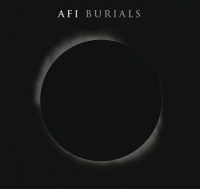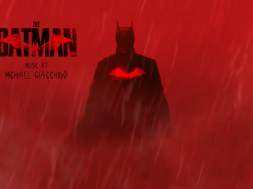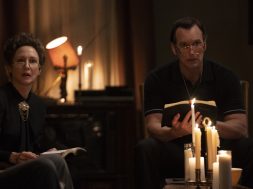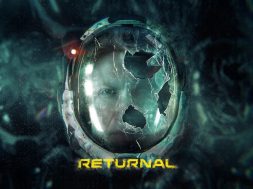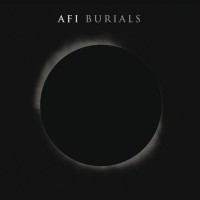
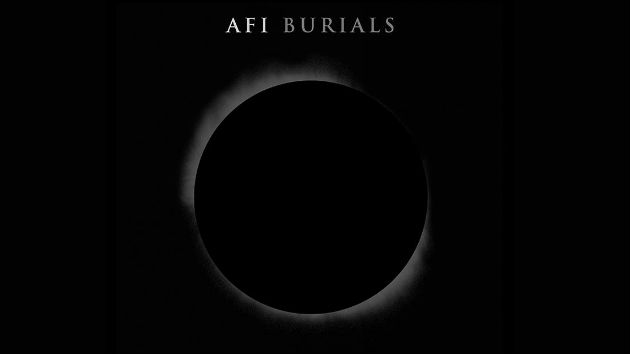
When a band starts their career with albums containing songs titled “Cereal Wars”, “Shatty Fatmas” and “I Wanna Get a Mohawk (But My Mom Won’t Let Me Get One)” and progresses to having song titles such as “Girl’s Not Grey”, “Days of the Phoenix”, “Kill Caustic” and “Carcinogen Crush”, you know the band’s undergone some pretty big changes along the way. Starting out as a straightforward hardcore punk four-piece, they’ve evolved numerous times over the years, hitting horror-punk, goth-punk, and electronic-tinged gothic alt-rock before settling into a trite electro-alternative post-rock sound for their latest effort Burials.
AFI is a band with some fantastic musicians, no question about it. Guitarist Jade Puget has an extraordinary ability to write memorable hooks and program atmospheric electronics which usually serve the song well. Bassist Hunter Burgan has some excellent technical chops, as seen on the instantly-memorable bassline for their megahit “Miss Murder”. Drummer Adam Carson provides a rousing rhythm for the rest of the band to follow, and vocalist Davey Havok possesses one of the best voices in modern music, able to turn his voice to clean vocals, punk-style shouts and metalcore-inspired screamed vocals. Ultimately, Burials doesn’t make the most of the talents of each of its members besides Havok, with Burgan’s basslines being lost in a mess of atmospheric electronic which overpower the rest of the song, Carson’s drums have been run through so many filters and effects that they may as well have come from a sample pack, Puget’s guitars still get a good dose of the spotlight but none of the riffs are instantly as memorable as many from the band’s back catalogue and his electronics are a lot less cohesive than their previous forays into the genre such as the song “Love Like Winter” or their darkwave/synthpop side-project Blaqk Audio.
Havok’s vocals are the high point of the album musically, as he’s fully allowed to showcase his range. On their previous record, Crash Love, a large portion of the songs had clean vocals exclusively (most speculate it was due to vocal cord problems, which seems to be reinforced by some particularly bad live performances of their scream-heavy songs around the time of the album’s release), a choice which thankfully isn’t carried over into the new record. Havok employs clean vocals on a lot of songs, true, showcasing both his skill at low notes and high-range singing, but really allows his voice to shine with harsh bellows on lead single “I Hope You Suffer” and “The Embrace”.
If I was to sum the album up with one word, I would opt for “gloomy”. If I was allowed to add another word to that I’d go with “oppressively gloomy”. Everything in the album is dark in tone, the electronics are layered to create an atmosphere of despair, the drums have so much reverb applied that it leaves them feeling hollow and the experience as a whole comes across as lacking a soul. Havok has said that he was going through “a vast amount of personal chaos” during the process of writing the album, so I guess it was to be expected that it’s not going to be a happy record, but for a band who’s pulled off the dark, romanticised side of gothic music while keeping it listenable and strangely uplifting in the past, I’m disappointed in their lack of ability to infuse any sense of light into the album.
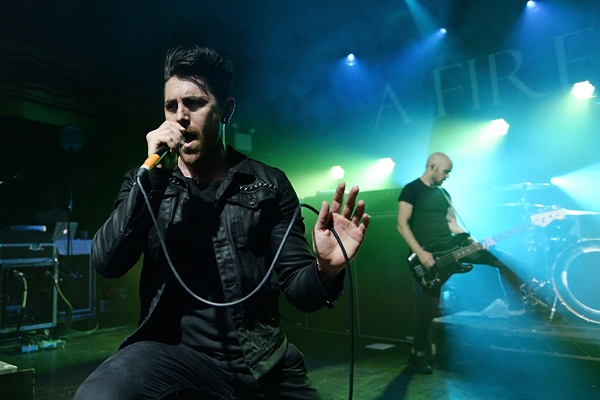
The one bright spot on the album, “17 Crimes”, is an upbeat, fast-paced ode to teenage freedom, a song with minimal electronics which allows its members all to shine with strong basslines easily cutting through the rest of the mix. My second-favourite song, “A Deep Slow Panic”, isn’t as enjoyable to listen to, but it stands out due to a good guitar riff that wouldn’t be out of place on their strongest album to date, Sing the Sorrow, and a chorus with a catchy vocal hook. The rest of the song doesn’t quite hold up to those two strong elements, but it’s more listenable than anything else on the album to me.
Havok has said in interviews that he wants people to “focus on the themes which are most poignant to them at that point in their lives”. I may just be the wrong audience for the record, because none of the themes of “isolation, panic, anxiety and the loss of self” speak to me personally.
Maybe I’m just at a point in my life where I’m still enjoying just living and experiencing (which would possibly explain why I enjoy “17 Crimes” as an ode to carefree living), but as a whole the record layers these themes on so heavily that they all just pile up and become a constricting, oppressive cloud of darkness. The same goes for the sound, as the mix has been stuffed to the brim with electronics, leaving it sounding overwhelming at first and eventually just meaning that no song stands out. On their past records, AFI have carefully selected the use of electronics to either lead or reinforce a song and have in general been very restrained with it. On Burials, however, the electronics create a wall of noise that blocks off the rest of the sonic experience, hiding it from the listener. In that respect, Burials is an appropriate title, as so much of the individual members’ talent get buried beneath this dizzyingly gloomy wall of dark ambience on the album.
This is the first album by the band which I found legitimately difficult to listen to all the way through. It took me until my fourth attempt to be able to listen to it in one sitting for review because the gloom was just too much for me to handle. Even tricks that the band has used on previous albums, such as having a prelude track (as on their two biggest albums Sing the Sorrow and Decemberunderground) falls flat, as Burials’ prelude fails to understand what made those songs effective album openers. The first actual song (and lead single) “I Hope You Suffer” is indicative of every problem the album has, neatly wrapped up in one package of dark awfulness. AFI have been on a decline since Sing the Sorrow, each album release being slightly worse than the last (not bad, by any means, just not as good as the previous one), but with Burials they’ve pitched headfirst into a shocking downward spiral in quality. None of the songs are memorable besides “17 Crimes”, and the album as a whole misuses the talent granted to it.
Some people may love the brooding nature of the album. Music will always be subjective. But to me, it’s a cacophony of angst, misplaced electronics and tortured vocals that leaves the band sounding like an awful imitation of The Smiths and The Cure than the pioneers of electronic-infused gothic punk I fell in love with. Avoid this one. Listen to Sing the Sorrow instead.
[easyreview cat1title=”The Arcade Verdict” cat1detail=”Disappointing effort from a talented band, Burials leaves AFI in a confusing mess of post-rock pretension.” cat1rating=”4″]
